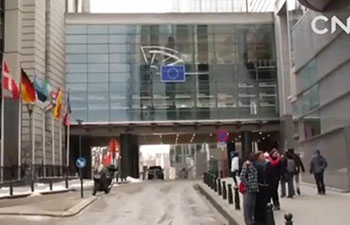MEXICO CITY, June 19 (Xinhua) -- U.S. tariffs imposed on several of its main trade partners could spur inflation at home and disrupt the growth of emerging economies, Mexican economist Gabriel Casillas said on Tuesday.
"Geopolitical risks" are nowadays more easily transmitted throughout the global economy, especially where the United States, the world's biggest economy, is concerned, said Casillas, president of the National Economic Studies Committee at the Mexican Institute of Financial Executives (IMEF).
"There has always been conflict in some part of the world, but the channels of transmission through the markets and the macroeconomy were never clear," Casillas told reporters at a press conference.
Things are different now, said Casillas, noting that "the risks are related to a very particular topic and connected to the macroeconomy of the markets: the inflationary pressure in the United States."
New tariffs on imports will lead to higher prices for some goods, and if U.S. inflation rises more than expected, it could lead the Federal Reserve to step up the pace of its interest rate hikes.
Since the 1970s, every time the Fed raised the interest rates, it sparked a crisis in emerging markets, said Casillas.
Last week, the Fed raised short-term interest rates by a quarter of a percentage point in the second hike this year and the seventh since the end of 2015.
The agency foresees making a total of four hikes this year, three in 2019 and one in 2020.













